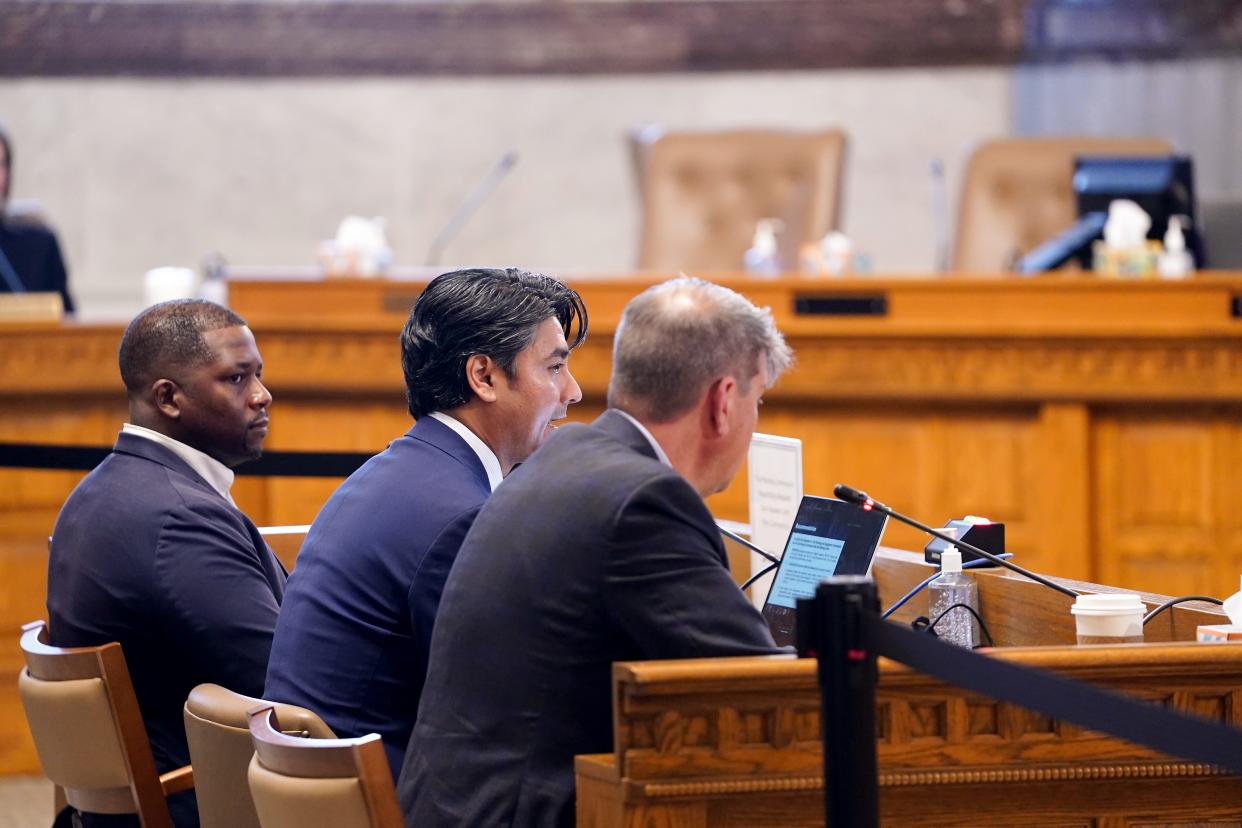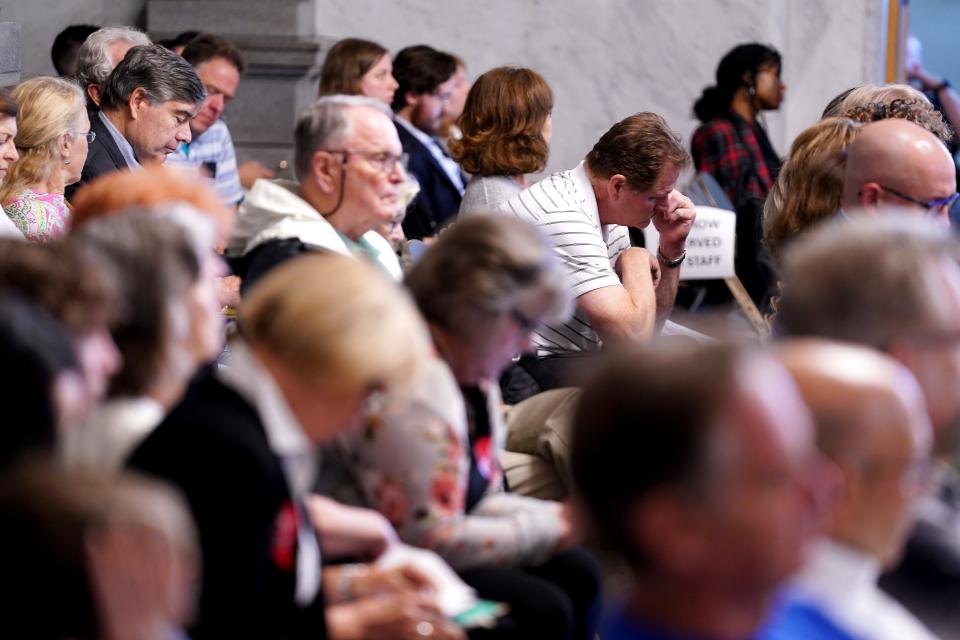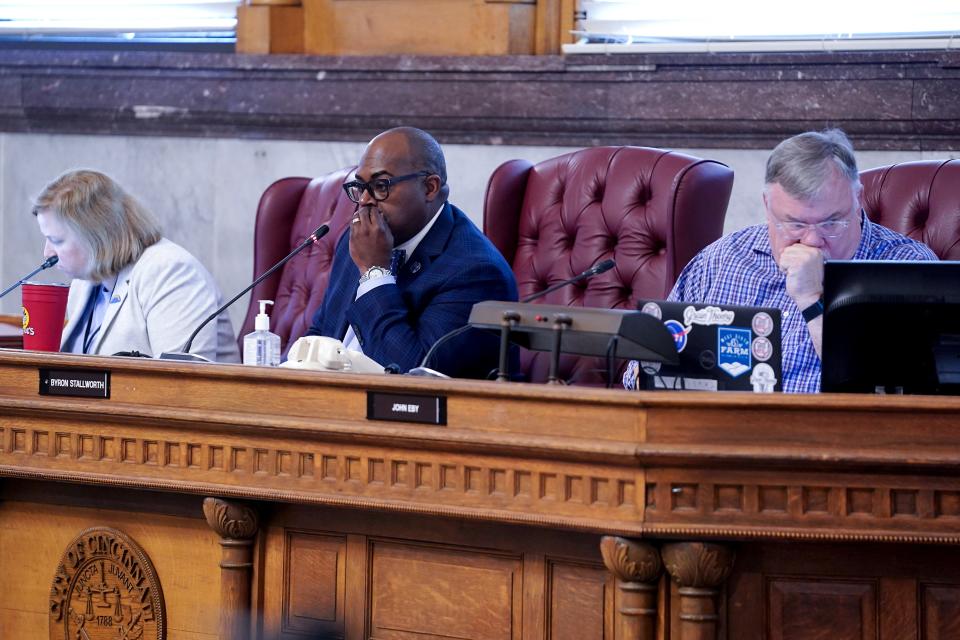Connected Communities plan ignores unique challenges facing neighborhoods | Opinion

Cincinnati has a variety of neighborhoods, each with its own charms and challenges. In Mt. Lookout, residents enjoy proximity to great parks, historic architecture and a thriving business district. However, we face challenges, including overburdened infrastructure, a lack of public parking and pedestrian safety concerns.
The mission of the Mt. Lookout Community Council is to inform, serve and advocate for the residents and businesses of Mt. Lookout. While perhaps stated differently, our mission is consistent with our colleagues in community councils across Cincinnati’s neighborhoods. The community councils are volunteer organizations comprised of engaged citizens who love our communities, pour into them, seek to change, improve and enhance them. The city itself notes that "Community councils are a crucial link between the City and its many unique neighborhoods, and each council is as unique as the neighborhood it serves. These organizations ensure that neighborhood development responds to the needs and goals of its citizens. The councils are also a vehicle for communication and engagement throughout neighborhoods."
So I was surprised and disheartened by the comments from Mayor Aftab Pureval and Councilman Reggie Harris in the recent Enquirer story on Connected Communities ("Connected Communities: Overhaul of city zoning code at pivotal point").

Regarding the pushback and opposition to the proposed legislation, Mayor Pureval was quoted as saying "they want their neighborhoods to be the way they are today. And change is very difficult." The article states that Pureval sees the opposition as resistance to change, not necessarily the plan itself.
This claim and the underlying viewpoint are an insult to the work of the community councils and the many residents and business leaders who have spent time and effort to review the plan, consider its possible risks and benefits, and clearly articulate well-founded concerns. It ignores the fact that community councils exist to drive change and improve their communities. It dismisses that they have the support of their residents in facilitating that change when it is well-calibrated to the needs of the neighborhood and considers their input and concerns.
It is lazy, disappointing, and a common tactic to undermine the opposing position.
Councilman Harris stated that presenting to individual community councils and their communities was "an unreasonable expectation for them to have." I would argue it is the most reasonable expectation of our city leaders to leverage and engage with "the crucial link between the City and its many unique neighborhoods." Former Councilwoman Liz Keating, to her credit, met this very reasonable expectation several years ago when she championed the last density ordinance. She found it more than reasonable to directly engage the communities that would be impacted by the proposal. She faced the tough questions, addressed concerns, and championed the benefits of that proposal in the communities.
Over the past two to three months, the Mt. Lookout Community Council has worked hard to inform our community about the proposed Connected Communities legislation and the changes it would bring to land use and zoning across Cincinnati, and specifically in our neighborhood. Our board has spent countless hours to present unbiased information to the neighborhood and gather the feedback of residents and business leaders. Throughout this engagement, the community's feedback has been overwhelmingly opposed to the legislation. Accordingly, the Mt. Lookout Community Council board of directors recently voted unanimously to oppose the proposed legislation in its current form and submitted our official position letter to the mayor, City Council, and the Department of City Planning and Engagement.

Cincinnati’s community councils are not resistant to change − we are change agents. I encourage the mayor and Councilman Harris to reflect on where in the broad and highly visible communication plan around this legislation they missed the community councils. According to The Enquirer’s survey, over 70% of Cincinnati’s community councils feel the engagement missed. To my knowledge, only one community council in the city supports the proposed legislation. Let’s rectify that before voting on this legislation in council. I challenge you to listen to the concerns of the community, address them instead of dismissing them, and take the time to enhance and amend the proposed legislation.
As stated in our position letter, to which we have received no direct response to date, Mt. Lookout Community Council welcomes the opportunity to collaborate in addressing the shared goals of our neighborhood and the city administration. I invite you to meet with our board, residents and business leaders prior to voting on the Connected Communities legislation. We are flexible to any date and time and look forward to organizing this engagement as soon as possible.
Mike Cheetham is the president of the Mt. Lookout Community Council.

This article originally appeared on Cincinnati Enquirer: City failed to engage community councils on Connected Communities plan

